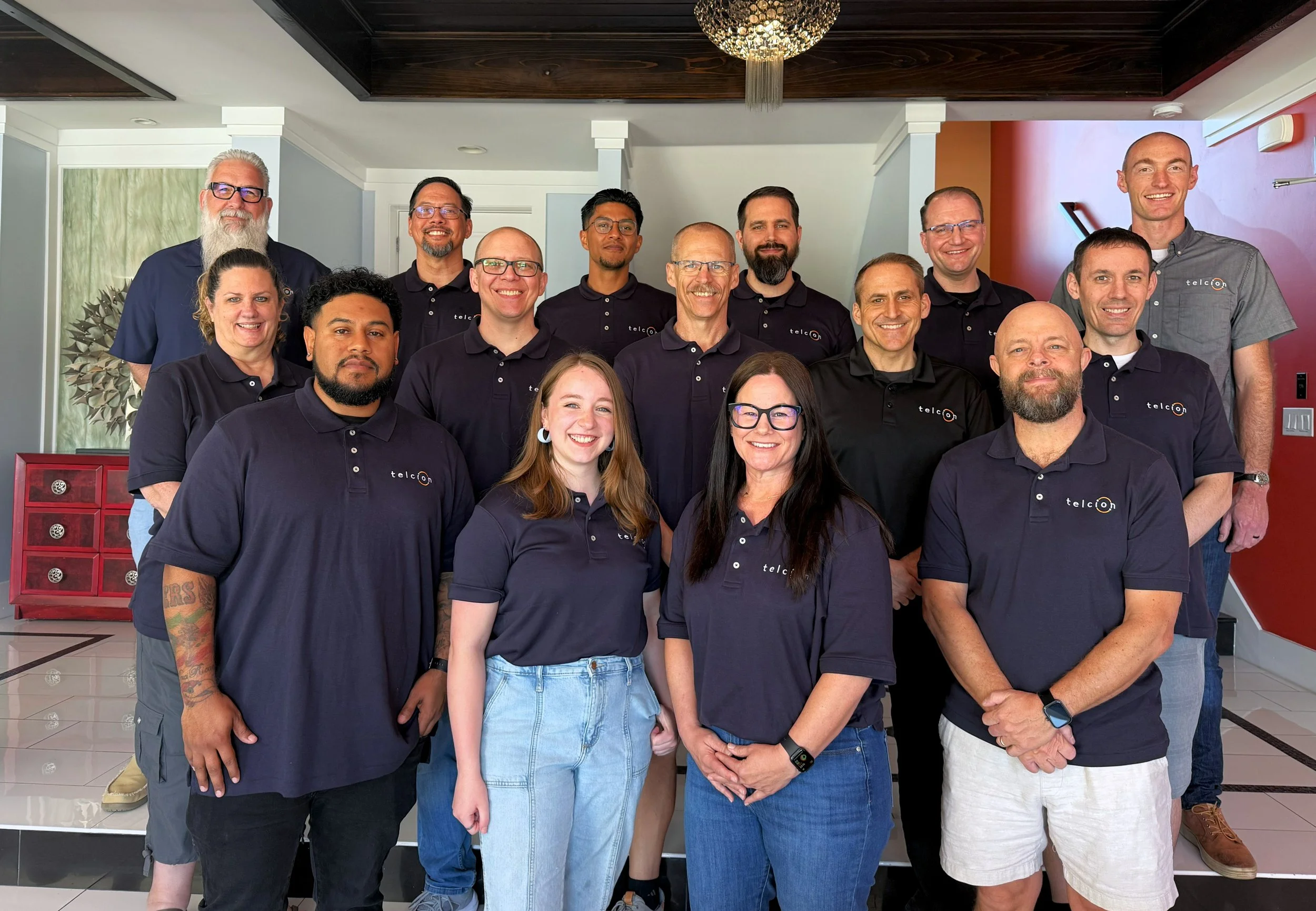Commitment in the Workplace
Commitment is vital in the workplace, fostering cohesion among employees and dedication to clients. A saying that is good to try to adhere to with clients is “under promise, overdeliver.” This mindset builds trust and creates a high performing environment where everyone thrives.
In this blog, we will cover why commitment is so important, and three principles to follow when maintaining commitment in the workplace.
Why Commitment is Important
Here are several compelling reasons why commitment is crucial in a professional setting:
Team Cohesion and Workplace Unity
Commitment fosters a sense of unity and cohesion within the workplace team. When employees are committed to their roles and the company's goals, they work together more effectively, leading to improved productivity and morale.
Consistency and Professional Development
Regular attendance and consistent effort contribute to skill development and overall improvement in the workplace. Committed employees continuously strive for excellence, leading to personal and professional growth.
Reliability in Delivering Results
A committed employee is a reliable employee. Clients and colleagues can trust them to deliver high-quality work consistently, leading to stronger relationships and better outcomes.
Accountability and Responsibility
Employees who are committed take ownership of their actions and responsibilities, both individually and as part of a team. They hold themselves accountable for meeting deadlines, achieving targets, and upholding professional standards.
Long-Term Success and Client Satisfaction
Long-term success in business often requires a sustained commitment to excellence. Committed employees are dedicated to providing exceptional service to clients, leading to increased satisfaction and loyalty.
Building a Positive Work Culture
Workplaces with a culture of commitment are more likely to thrive. When employees are committed to their work and each other, it creates a positive environment where collaboration flourishes, and everyone feels valued and supported.
Personal and Professional Development
Beyond the immediate benefits to the organization, commitment to work fosters personal and professional development. Employees learn valuable skills such as time management, communication, and problem-solving, which enhance their overall effectiveness
Principle #1: Keep Your Commitments
When you commit to a task, project, or deadline in the workplace or to a client, it's imperative to uphold that commitment fully. This means:
Consistent Follow-Through
Demonstrate reliability by consistently following through on your promises and meeting deadlines. Your colleagues and clients should trust that you will deliver as agreed upon.
Effective Time Management
Allocate sufficient time and resources to fulfill your commitments effectively. Prioritize tasks and organize your workflow to ensure timely completion without compromising quality.
Clear Communication
Communicate openly and proactively with relevant stakeholders if you encounter challenges or anticipate delays in meeting your commitments. Transparency fosters trust and allows for collaborative problem-solving.
Flexibility and Adaptability
Remain flexible and adaptable in responding to changing circumstances or unforeseen obstacles that may impact your ability to fulfill commitments. Be willing to adjust plans or seek assistance as needed.
Accountability
Take ownership of your responsibilities and their outcomes. If you fall short of meeting a commitment, acknowledge the issue, take corrective action, and learn from the experience to prevent recurrence.
Respect for Others' Time and Effort
Recognize that failing to honor your commitments not only reflects poorly on yourself but also affects your colleagues and the organization as a whole. Respect their time and effort by fulfilling your obligations promptly and professionally.
By adhering to this principle of honoring commitments completely, employees contribute to a culture of trust, reliability, and accountability in the workplace. This fosters positive relationships, enhances team effectiveness, and ultimately drives organizational success.
Principle #2: Learn to Say No
To maintain effectiveness and uphold existing commitments, it's essential to learn when to say no to new obligations. This might mean passing on new opportunities (which might affect your pocketbook).
Evaluate Capacity
Before agreeing to take on a new task, project, or responsibility, assess your current workload and availability. Consider factors such as existing commitments, deadlines, and ongoing projects to determine if you have the capacity to fulfill the new commitment effectively.
Understand Impact
Recognize the potential impact of accepting a new commitment on your ability to meet existing obligations. Will it require additional time, resources, or attention that could detract from your current responsibilities? Be realistic about what you can realistically handle without compromising quality or timelines.
Communicate Boundaries
Practice assertive communication by respectfully declining new commitments when you are unable to fulfill them without overextending yourself. Be honest about your limitations and explain your decision clearly and courteously, focusing on your existing commitments and priorities.
Propose Alternatives
If feasible, offer alternatives or compromises to accommodate the requester's needs while still honoring your existing commitments. This could involve suggesting alternative timelines, redistributing tasks among colleagues, or exploring alternative solutions to meet the need.
Seek Support
Don't hesitate to seek support or assistance from colleagues, supervisors, or team members if you feel overwhelmed by your workload or commitments. Collaborate with others to find solutions that allow you to fulfill your obligations effectively while maintaining a manageable workload.
Maintain Boundaries
Establish and maintain healthy boundaries to protect your time, energy, and well-being. Learn to prioritize your own needs and responsibilities, saying no to new commitments that would detract from your overall productivity and work-life balance.
By adhering to this principle of learning to say no to new commitments when unable to fulfill existing ones, employees can avoid overcommitment, reduce stress, and maintain a focus on their most important priorities.
Principle #3: Communicate, Communicate, Communicate
This is all I have to say in this area... You have to communicate ASAP when you can’t reach your commitment. Your fellow employees and clients will accept this response over being ghosted.
In today's demanding work environment, individuals often face competing priorities and challenges. However, by prioritizing commitment to their work and colleagues, employees can navigate these demands successfully, contributing to a culture of excellence and achievement.
This post was contributed by Darren Rodrigues, a Business Technology Consultant at Telcion.




